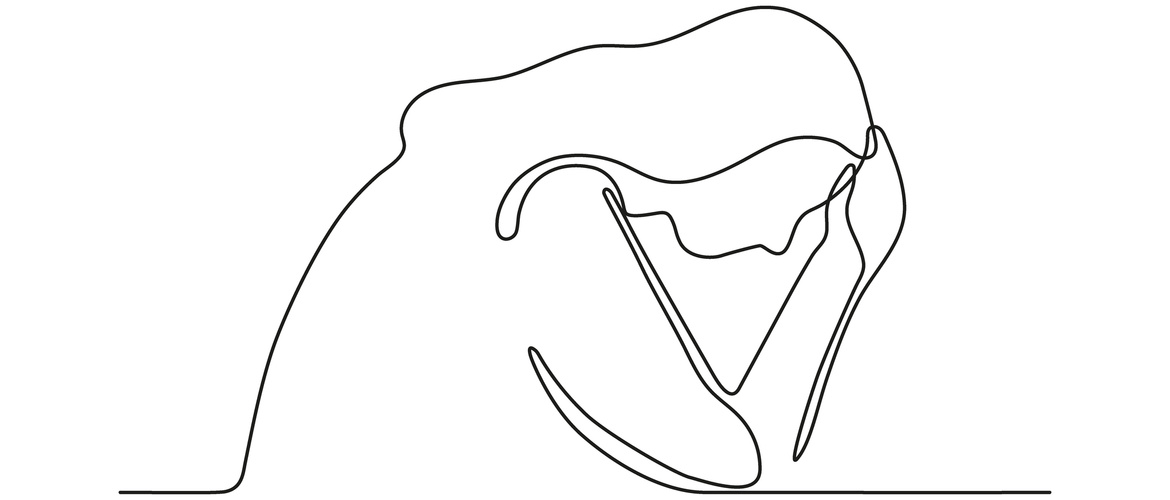
Patients with migraine often have psychiatric comorbidities. This can affect disease severity and treatment options, but surprisingly sometimes in good ways. Professor Todd A. Smitherman of the University of Mississippi, Oxford, MS, explored the evidence at the AHS hybrid meeting in Denver.
The frequency of psychiatric disorders is higher in patients with migraine than the general population.1 In the Chronic Migraine Epidemiology and Outcomes (CaMEO) study, depression and anxiety were reported in 30.0% and 28.1%, respectively, of respondents with episodic migraine.2 Rates were significantly higher with chronic migraine, at 56.6% for depression and 48.4% for anxiety.2
Many psychiatric comorbidities are associated with migraine1-5
In addition, other psychiatric comorbidities that can increase the risk for migraine include psychological trauma,3 post-traumatic stress disorder (PTSD),4 and adverse childhood experiences.5
Increased disease burden
Psychiatric comorbidities have an impact on quality of life. In CaMEO, depression or anxiety alone significantly increased the risk of moderate or severe disability related to migraine.2 Interestingly, respondents with both depression and anxiety showed an even higher risk of disability.2
Professor Smitherman presented unpublished data showing that headache-related disability decreased in the COVID-19 era compared with pre-pandemic levels. However, disability related to depression and anxiety increased during the pandemic, and these cancelled out the improvements in patients who also had migraine.
Depression and anxiety increase migraine-associated disability with an additive effect2
Increased risk of migraine progression
Psychiatric comorbidities are also risk factors for migraine chronification and medication overuse headache (MOH).
A recent systematic review concluded that depression had strong evidence as a chronification risk factor.6 There is evidence of a dose dependency, with more severe depression showing increased risk of progression to chronic migraine.7
The 11-year Nord-Trøndelag Health Surveys found an odds ratio of 4.7 for MOH in respondents with a baseline combination of musculoskeletal and gastrointestinal complaints with anxiety or depression.8
Treatment may be more effective
Perhaps surprisingly, patients with migraine and a comorbid mood or anxiety disorder could respond better to preventive treatment. One study showed significantly larger reductions in migraine days and disability measures for these patients compared to those without a mood or anxiety disorder.9
Patients with psychiatric comorbidities could respond better to treatments than those without9,10
Furthermore, another study investigated integrating cognitive behavioral therapy (CBT) approaches for migraine and comorbid depression. Patients in the CBT group showed significantly greater improvements than the routine care group not only in measures of headache but also depression and anxiety.10
Learning to cope
Professor Smitherman raised the important point of fear and avoidance of pain, which affect patients interictally11 and increase the risk of MOH.12 Traditionally, patients have been counseled to avoid all triggers, but this can lead to increased sensitivity to triggers.13
The “learning to cope” approach performed better than avoidance of migraine triggers13
A promising approach is the learning to cope with triggers (LCT) model, which aims to desensitize patients to some triggers by continuing exposure to them.13 In a randomized controlled trial, the LCT group showed significantly better improvements in migraine attack frequency than treatment-as-usual, whereas the trigger avoidance group did not.13
Patients may not share everything
In closing, Professor Smitherman noted that patients may have concerns about discussing psychiatric symptoms due to perceived concerns about stigma associated with migraine.14 Tools such as the Headache Acceptance Questionnaire (HAQ) may be helpful in addressing this.15
PTSD : post-traumatic stress disorder
QoL : Quality of life
MS : Mississippi
AHS : American Headache Society
CaMEO : Chronic Migraine Epidemiology and Outcomes
COVID-19: Coronavirus Disease 2019
MOH : medication overuse headache
CBT : cognitive behavioral therapy
LCT : learning to cope with triggers
HAQ : Headache Acceptance Questionnaire
BE-NOTPR-0245 approval date 02/23
